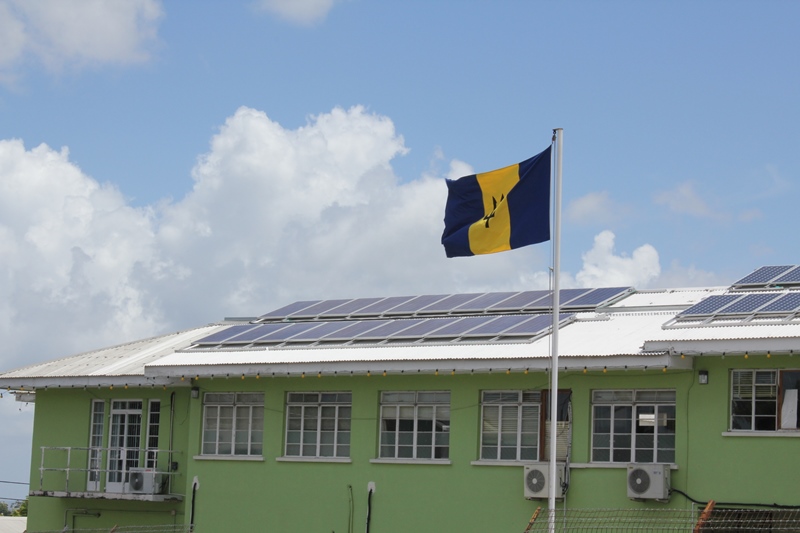

Abrahams talked about his country’s 100 percent renewable energy target during the Caribbean Renewable Energy Forum (CREF2018), which took place November 7-9 in Miami.
In a subsequent interview with the Energy and Climate Partnership of the Americas (ECPA), he explained that the new government—Prime Minister Mia Mottley took office in May of this year, following a landslide victory by the Barbados Labour Party—had promised renewable energy and intended to deliver on it.
“It sounds ambitious, but you need to understand where we’re coming from. We’ve wasted too much time,” he said. “There’s a lot of talk, and the progress has been slow.” In fact, he said, only about 6 percent of the country’s energy currently comes from renewable sources.
The urgency of accelerating renewable energy development is driven less by idealism than by the practical need to address the country’s fiscal problems, according to Abrahams. (The new government recently entered into a $290 million loan agreement with the International Monetary Fund and signed a $100 million loan with the Inter-American Development Bank, after developing the Barbados Economic Recovery and Transformation Plan to help get the economy back on its feet.)
Energy is a critical part of the macroeconomic picture because oil imports account for the biggest drain on foreign reserves, Abrahams said. “We simply cannot afford to keep buying oil from overseas when we have all the raw materials for renewable energy. We have constant wind, we are blessed with sunshine almost 365 days a year, we’re surrounded by the ocean. So our aim to deliver on that is largely informed by what we need to do to make ourselves also viable and sustainable economically.”
How can Barbados get to 100 percent renewables? Both in the CREF2018 sessions and in the interview, Minister Abrahams made it clear that all renewable sources are under consideration—solar with battery storage, wind power, biomass, even ocean energy. “We are just a blank slate looking to reach that goal by 2030,” he said during one of the conference sessions.
Distributed energy will be a central area of focus, Abrahams said in the interview, noting that the goal is to lay the foundation so that consumers can produce solar energy and sell the excess to the grid. “We want to democratize the generation of electricity in Barbados,” he said.
The local utility—Barbados Light & Power, owned by the Canadian-based Emera Inc.—owns the distribution network and will retain a monopoly on electricity distribution but not on generation, Abrahams said, adding that the government is currently in the process of negotiating a new agreement with the company. “They’ve agreed to work with us in good faith, and let’s find a mix that fits,” he said.
The government hopes to provide clarity soon on rate and tariff issues so that the private sector will invest in renewable energy, he added.
On the transport front, any new government vehicles in Barbados now have to be electric, unless electric vehicles aren’t up to the job. As to the public transit system, “we intend to go straight to replace our old buses as soon as possible with electric vehicles,” Abrahams said.
All this is not only going to cost a lot of money—in the billions of dollars, Abrahams acknowledged—but it will also require a change in the way people think about energy and consume it. That’s where the 100 percent target comes in.
“We didn’t want to give ourselves the out of saying 75 percent by a certain time, because then you start to deviate from the plan, and you start to rely more on natural gas, or you start to make exceptions to the policy,” Minister Abrahams explained. “Our commitment of 100 percent is geared at focusing the minds of the public, is geared at focusing the mind of the utility, is geared at focusing all the independent stakeholders, is geared at focusing the minds of the government that nothing other than a full commitment to this will do, and we are going straight out to get it.”
 View Map
View Map